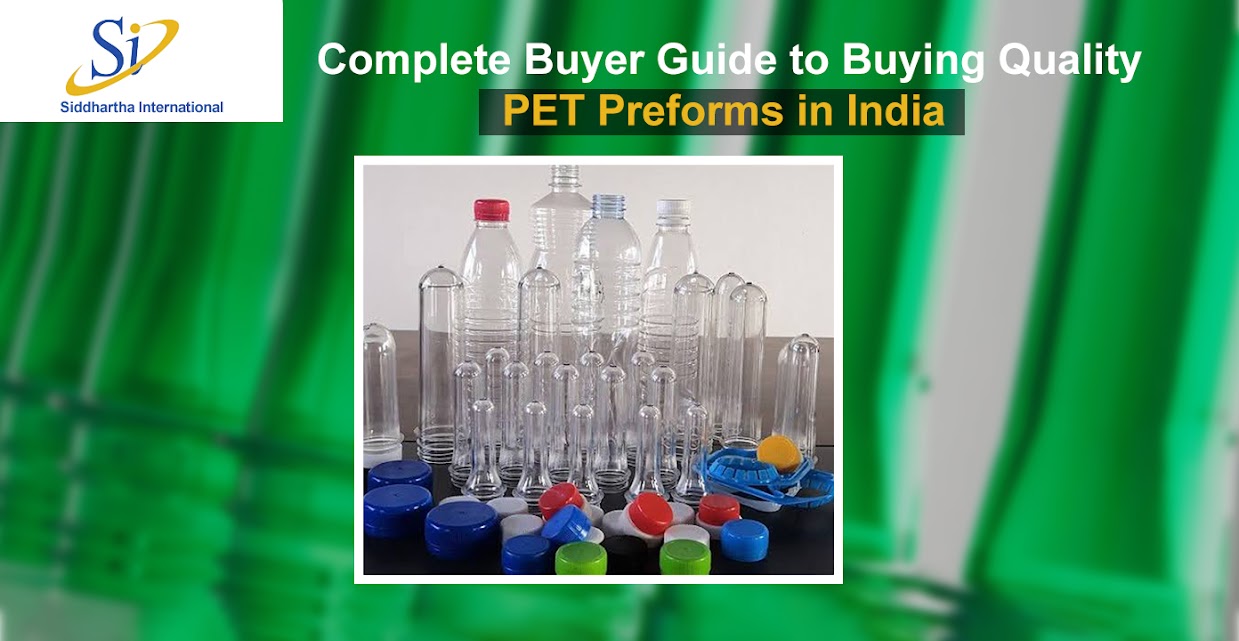
PET (Polyethylene Terephthalate) preforms are the foundational elements in the manufacturing of plastic bottles, jars, and containers used across a variety of industries including beverages, pharmaceuticals, cosmetics, and household products. India is one of the leading manufacturers and exporters of PET preforms due to its robust plastic processing industry and cost-effective production methods. This guide offers a comprehensive overview of how to buy quality PET preforms in India, the different types available, standard specifications, and industrial uses.
A PET preform is a semi-finished product made from polyethylene terephthalate through an injection molding process. These preforms are later reheated and blown into final shapes such as bottles and containers using blow molding machines.
a. Identify Reputable Suppliers
Look for manufacturers or exporters who have ISO certifications, quality control systems, and strong references. Online B2B platforms like IndiaMART, Dial4Trade list numerous verified suppliers.
b. Check Material Quality
Ensure the preforms are made from virgin PET resin unless recycled PET is specifically required. Reputable suppliers often provide food-grade and pharma-grade PET preforms.
c. Request Samples
Before placing a bulk order, always request product samples for visual inspection, dimensional accuracy, and quality testing.
d. Inspect Manufacturing Facility (if possible)
If your order is large or long-term, consider inspecting the manufacturing facility or requesting video proof of manufacturing standards and QC processes.
e. Compare Pricing & Delivery Terms
Ask for a detailed quotation that includes per-piece cost, shipping, taxes, and lead time. Compare offers from 3–5 suppliers.
f. Review Supplier Credentials
Ensure the supplier is compliant with BIS (Bureau of Indian Standards), FSSAI (for food-grade preforms), and other regulatory guidelines.
PET preforms are categorized based on neck size, weight, color, and intended use. Common types include:
a. By Neck Size
28mm PCO (Plastic Closure Only) – Common in soft drink bottles
30/25 Neck – Mineral water bottles
38mm 3-start – Juice and dairy applications
b. By Application
Beverage Preforms – Water, carbonated drinks
Pharmaceutical Preforms – Medicine bottles
Oil Preforms – Edible oil containers
Cosmetic Preforms – Cream and lotion containers
c. By Color
Clear (Transparent) – Common for water and general use
Amber/Brown – Used in pharmaceuticals to protect from UV light
Green/Blue – Often used for soft drinks and cosmetic bottles
Here are key technical specifications that buyers must review:
Neck Diameter : 19mm to 120mm
Preform Weight : 10 grams to 100 grams+
Intrinsic Viscosity : 0.76 to 0.85 (dl/g)
Material : Virgin PET, Food Grade
Color Options : Transparent, Amber, Blue, Green, Custom
Tolerance : +/- 0.1 mm (depends on neck finish type)
PET preforms are used across diverse industries due to their durability, transparency, lightweight nature, and recyclability.
a. Beverage Industry
The most significant user of PET preforms. Preforms are blow-molded into bottles for:
b. Pharmaceutical Industry
PET preforms are converted into bottles for:
c. Edible Oil & Food Packaging
PET bottles derived from preforms are widely used for:
d. Cosmetics & Personal Care
e. Chemical & Industrial Liquids
Ans: A PET preform is a semi-finished plastic product made from polyethylene terephthalate through an injection molding process. It is later blown into a bottle or container using a blow molding machine.
A: Important factors include:
Ans: PET preforms are widely used in industries such as:
Ans: Yes. Many Indian manufacturers follow international quality standards like ISO, FDA, and BIS, and supply PET preforms globally with competitive pricing and bulk capacity.
Ans: Neck size depends on your product type and the capping requirements. For example, 28MM PCO is common for carbonated drinks, while 28MM Alaska is widely used for water bottles.
A: Lead time usually ranges from 7 to 21 days, depending on order quantity, customization needs, and factory load.
A: Yes. Indian suppliers often offer color customization (e.g., blue, green, amber) and can modify preform shapes based on client specifications.
A: MOQ can vary by manufacturer but typically starts from 10,000 to 50,000 pieces per size or type.
Copyright © 2026 Siddhartha International All Rights Reserved.